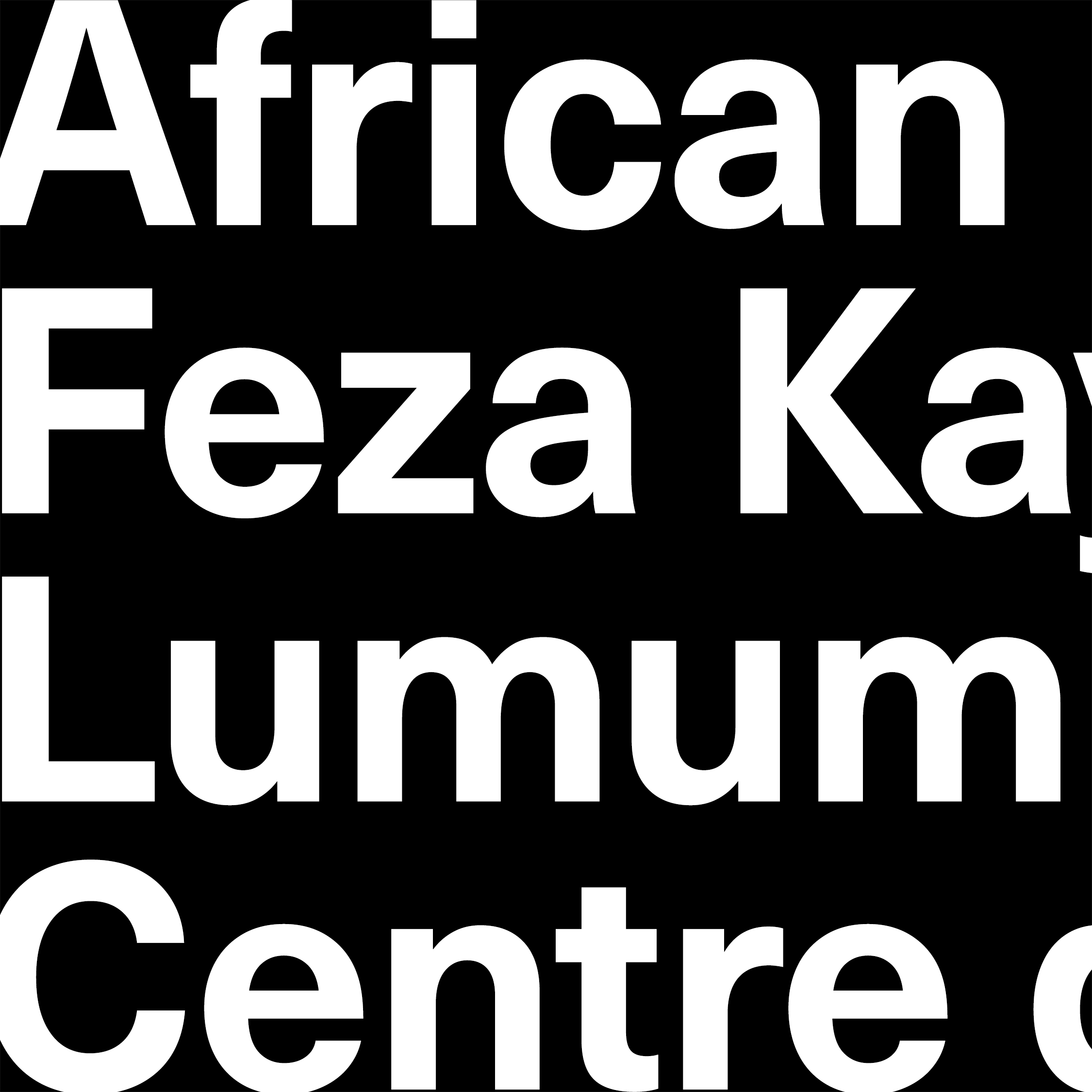As the first month of 2025 comes to a close, we want to highlight the most recent episodes of the e-flux podcast featuring conversations with Feza Kayungu Ramazani, Samia Halaby, and Shana Moulton.
African Film Institute: Feza Kayungu Ramazani on Lumumba and Centre d’art Waza
This episode was recorded live at e-flux on September 19, 2024. The event, hosted by the African Film Institute, featured a screening of Lumumba (2000, 115 minutes) by Haitian director Raoul Peck, followed by a conversation between Feza Kayungu Ramazani of Centre D’art Waza and anthropologist Natacha Nsabimana.
Feza Kayungu Ramazani is an artist and researcher based in Lubumbashi. She is a member of the Power to the Commons project and Another Roadmap of Arts Education Africa Cluster (ARAC), which is a network of researchers and practitioners engaged in collaborative research revisiting the history, politics, and alternative practices in arts education through literature. She is also curatorial assistant at École du soir, administrator of Centre d’art Waza, and a critical writer questioning images of African beauty and exoticism. Her research on African values, creativity, ancestral practices, and technology aligns with a desire to reinvent the conception and conservative function of museums in the Democratic Republic of Congo.
Samia Halaby: Kinetic Painting
A conversation between artist Samia Halaby and Sanna Almajedi, recorded following a live performance at e-flux on September 10, 2024. For the performance, Halaby used a computer program that she coded in the early ’90s to generate abstract shapes. These were manipulated in real-time alongside sonic improvisation by musician Amir ElSaffar.
Samia Halaby is a trailblazer in contemporary abstract art internationally. In her distinctive painting style, Halaby draws inspiration from nature and historical movements such as early Islamic architecture and the Soviet avant-garde. Displaced from Palestine in 1948 with her family when she was eleven, Halaby was educated in the American Midwest at a time when abstract expressionism was popular but female abstract painters were marginalized. Halaby believes that new approaches to painting can transform our ways of seeing and thinking, not only within aesthetics, but also as a way to discover new perspectives for advances in teaching, technology, and society at large. This conviction has inspired her to pursue additional experiments in drawing, printmaking, computer-based kinetic art, and free-from-the-stretcher painting.
Shana Moulton: In Search of Meaning
This conversation between Shana Moulton and e-flux Film curator Lukas Brašiškis was recorded at e-flux following a screening on Thursday, April 4, 2024.
Weaving feminist undertones with surrealist imagery and sound, Shana Moulton’s work explores the nuances of the contemporary psyche. Her Whispering Pines series, in particular, delves into the intricacies of self-help culture, the quest for spiritual meaning, and the often comedic absurdity of personal wellness rituals. In her performances, videos, and installations, Moulton, through the experiences of her alter ego, Cynthia, writes a narrative that is both personal and universally resonant, probing the boundaries between the mundane and the mystical in the time of global digital capitalism.
An edited version of this conversation was published on e-flux Film Notes. Film Notes, launched in June, features conversations with artists and filmmakers, scripts, and experimental writing on the moving image.
About the e-flux podcast
The e-flux podcast features conversations with some of the most engaged artists and thinkers working today. Produced by Erin Ferro-Murray and Keli Safia Maksud, it is available for subscription on Apple Podcasts, Spotify, and SoundCloud.
The full archive can be filtered by contributor and subject on the e-flux website here. Some highlights from the past include Stephanie Dinkins on “Afro-now-ism” (2020), Franco “Bifo” Berardi on the future possibility of living well (2019), Kader Attia on La Colonie and Algeria (2019), and Collective Intelligence: Agnieszka Kurant, Tobias Rees, and Elvia Wilk (2019), and Masha Gessen on how to survive an autocracy (2018).
